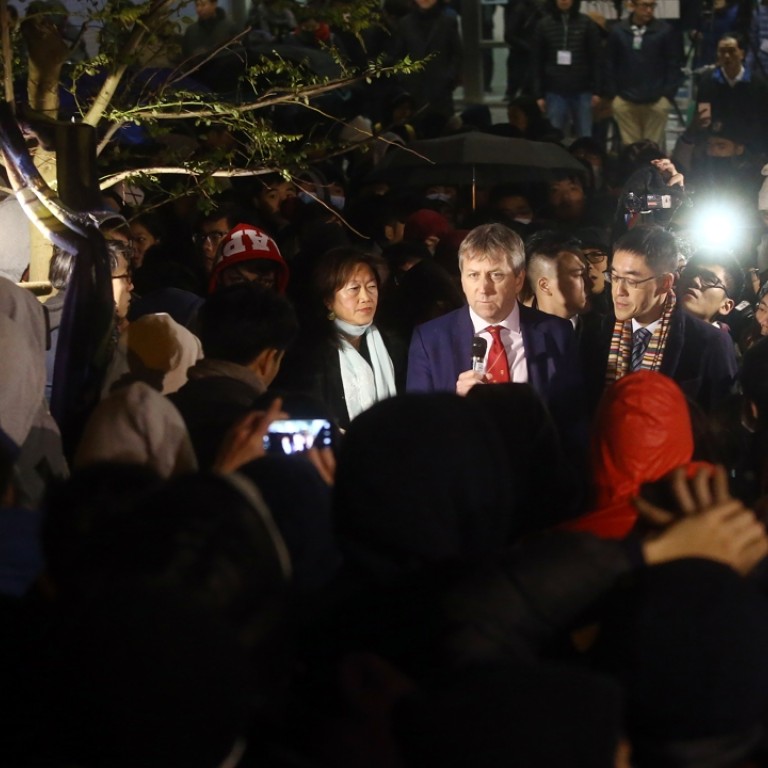
Stench of politics hits University of Hong Kong hard
Council chairman Arthur Li needs to show a conciliatory face, while students need to understand they can’t have it all their way
Is there any way to talk dispassionately about how the stench of politics has so pervaded the University of Hong Kong that it’s becoming an embarrassment? Forget it. Our politics has become so warped that there is only black and white. If you condemn students laying siege to HKU council members, you’re a lackey of chairman Arthur Li Kwok-cheung, or worse still, of Chief Executive Leung Chun-ying, who appointed him. If you criticise Li’s brazenly combative style, you’re labelled a sympathiser of crazed students who storm meetings if they can’t have everything their way.
All you can do in our poisoned political climate is to hold your nose and turn away. You can try using facts to make your point about the circus that HKU has become, but facts no longer count in our black and white politics. The morning after Li said a tiny minority of students who barricaded council members had behaved like they were on drugs, a Commercial Radio talk show host denounced Li’s provocative words as worse than expletives. If it is worse than swearing to say students had behaved like a mob, then how to label students who try to smash open a meeting room door, blockade council members and prevent one who felt sick from leaving in an ambulance? Is such behaviour better than using expletives?
The morning after Li accused the Civic Party of manipulating idealistic students, party leader Alan Leong Kah-kit was asked on a Chinese-language radio show if the student blockade was justified. He replied that the question should instead be why they did it. Public Eye will answer that question. The students twice stormed and barricaded council members because they wanted former law dean Johannes Chan Man-mun to be appointed pro-vice-chancellor, didn’t want Li as council chairman, and want to end the tradition of the chief executive as chancellor so Leung will no longer have the constitutional right to appoint the chairman and some members. Do we set such a low threshold for violence that not getting what you want justifies it? We’ll leave that thought with you.
There is now talk of suing Li for claiming without proof that the Civic Party had manipulated students. It reminds us of the proverb that people who live in glass houses shouldn’t throw stones. Li’s critics have claimed without proof that as chairman he would stifle academic freedom at HKU, that he’s out to destroy HKU and that he opposed Chan as pro-vice-chancellor on Beijing’s order. If saying students had been manipulated is libellous, then surely saying all that is equally libellous.
Let’s not make HKU a new battleground for the Occupy movement. As chairman, Li needs to prove he is a unifying leader by being conciliatory rather than combative. The students must understand they can’t expect a total say in a taxpayer-funded university which heavily subsidises their education.

